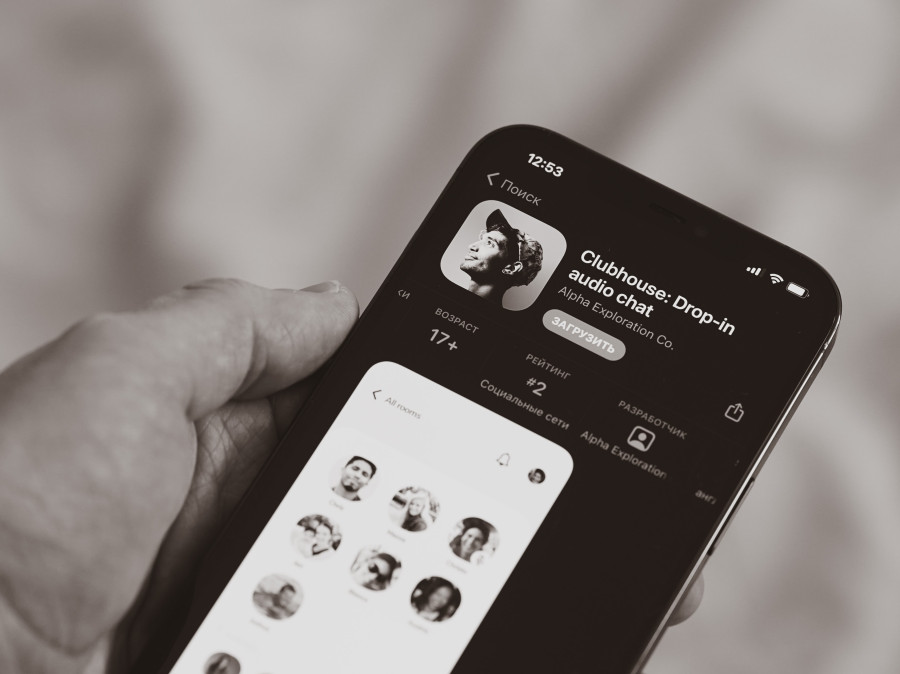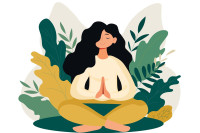Life & Style
Is Clubhouse here to stay in Nepal?
One of the popular applications of recent times, Clubhouse’s burgeoning popularity is a matter of both curiosity and concern.
Ankit Khadgi
As a postgraduate student of sociology, Dikshya Karki, 24, was looking for a platform where she could connect with people from her field.
The social media apps she uses don’t really allow her to build her network and directly contact people working in her field.
But things have changed since she joined Clubhouse, an invitation-only audio app, last month.
Now every other day, Karki is on Clubhouse taking part in discourses on a wide range of issues from gender to patriarchy, with professionals from her field.
“Being in Clubhouse has been a highly rewarding experience for me. The platform has made it possible for me to share the same virtual space with professionals from my field and I have been able to learn so much from them and also build my network,” says Karki, who along with a few professionals run Feminist GuffGaff, a club on the platform.
Ever since Clubhouse was made available to Android users in May this year, the number of Nepali users on the platform has surged.
From people who want to build their networks and want to learn from experts to those who just want to have fun-filled chitchat, Clubhouse has provided space for all kinds of conversation to exist on its platform.
There’s no exact data to determine the app’s popularity in Nepal. But according to Google Trends—a platform run by the search engine to track the popularity of search queries—Google search for the word Clubhouse has seen a 100-fold increase in the past one month.
The app was released in March last year. At the time the whole world was under some kind of travel restrictions, and the invite-only social media app became a perfect platform for people to connect with their friends, like-minded people and those with whom they share the same professional backgrounds.
To become a member of the Clubhouse, one needs to have their invitation accepted by someone who’s already on the platform. The person is then free to participate, listen and even speak anonymously in various chat rooms on the platform.
This unique feature, which other pre-existing applications don’t have, is one of the reasons for Clubhouse’s popularity.
Many Nepali internet users from privileged backgrounds are switching to the application and are using it rigorously, says Dr Sudhamshu Dahal, coordinator of Media Studies at Kathmandu University of School of Arts.
“Since the app operates like an open mic where people can speak anonymously, people are finding it more engaging than any other applications. Once Clubhouse got popular, more people started getting into it because people generally tend to rush to be part of popular internet bubbles,” says Dahal, who’s an expert on new media and information communication technology.
But Dahal believes that Clubhouse’s surging popularity is also because of how the app capitalises on the hearing culture of our society.
Long before the internet and television became a thing, people relied on radio to stay informed and entertained. For years audio played a pivotal role in mass media.
“Clubhouse also has some traditional features like radio. People can just stay quiet and listen to others talk while doing their own chores, which has added to the app’s appeal,” says Dahal. “The recent popularity of Clubhouse is a sign that audio as a medium for communication is still popular.”
After the huge success of Clubhouse, many popular social media platforms have tried to replicate the app’s success.
In April 2021, Twitter launched a feature called ‘Spaces’ on its platform. ‘Spaces’ allow users to host live audio conversations, and up to 11 people (including the host) can speak. This Twitter feature is also getting popular among Twitter users in Nepal. Similarly, Facebook is also testing an audio platform called Hotline, which allows users to talk as well as video chat with others.
Many who use Clubhouse here in Nepal say that the app couldn’t have come at a better time.
“During the second wave of the Covid-19 pandemic, Clubhouse has been the most rewarding experience for me,” says Sampada Malla, a writer and filmmaker and an avid user of the app. “Through this platform, I have been able to connect with other people from the film industry, many of them I haven’t met in real life. I have also got to know many aspiring filmmakers and writers. In short, it has made everyone accessible to each other and has created a platform of learning for all of us.”
Every day at 9 pm, Malla and her colleagues from the film industry start a discussion on the platform. Discussion topics range from the basics of screenwriting to how to manage the post-production of films. Each discussion, says Malla, who hosts the session along with other filmmakers, sees an average of 400 participants.
“The engagement in our sessions is so high. Sometimes a session lasts around four hours, and people wholeheartedly participate with the intention to learn something new. A few aspiring filmmakers have reached out to me saying how fruitful these sessions have been for them,” says Malla.
But not everyone using the platform has pleasant experiences to share. Although Clubhouse is still in its initial phase, the platform doesn’t guarantee a safe space, especially for women and queer users. Since anyone can take part in any of the chat circles in the app, people can also leave unpleasant remarks unless they are stopped by the moderators.
Similarly, many users of the platform say that they have been receiving unwanted messages on their personal social media accounts from fellow Clubhouse users.
“One guy messaged me asking if I am single. The other asked where I lived. One even said that he liked my voice and wanted to talk with me. After I started using the platform, my DMs have been flooded with such intrusive and creepy messages that have disturbed me in some way,” says a user who wants to remain anonymous.
And because of the open nature of Clubhouse, which allows anyone to join the conversations freely without being held accountable for any misinformation they spread or any problematic thing they do, Dahal says that it is important to analyse and reflect on whether the platform is a safe space or not.
“Clubhouse can be like a double-edged sword. On one hand, it can be a liberating experience for people to connect and speak with one another, but on the other hand, the chances of people misusing it are high as well,” says Dahal. “I have taken part in sessions where people were talking about something they don’t have expertise in.”
As the platform is relatively new, there hasn’t been enough research done that can analyse its impact. What also remains to be seen is whether the app will be able to engage users even after the pandemic. Many users the Post spoke to say that they will be using the platform as long as the lockdown is in place. But once lockdown opens, they say they are unsure if they’ll still spend as much time on the platform.
“The application has definitely made it easier for me to connect to people and learn from them and I am definitely enjoying using the app,” said Karki. “But I am not sure whether I will be on the application when things get back to normal.”




 9.89°C Kathmandu
9.89°C Kathmandu










